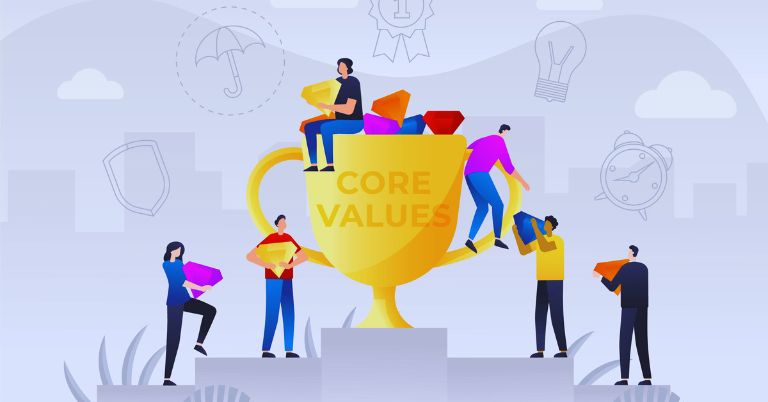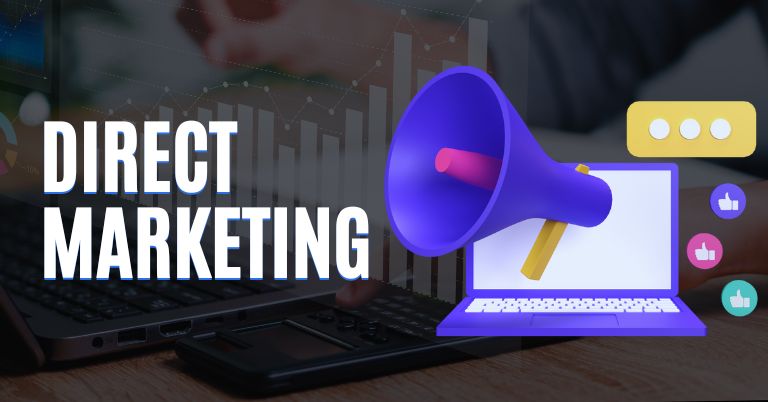Our company supports employee professional growth through regular training and development opportunities. We offer workshops, seminars, and mentoring programs to help them further their knowledge and skills.
Additionally, employees are encouraged to pursue certifications and attend relevant conferences to stay updated with industry trends and advancements.
Let's See the Topic Overview
Why Professional Growth Matters For Your Employees
The professional growth of employees is imperative for any company to thrive. Supporting it through various initiatives like training programs, mentorship opportunities, and career development plans can help employees enhance their skills, stay motivated, and contribute effectively to the organization’s success.
Growth As A Pathway To Motivation And Engagement
- Continuous professional growth is essential for enhancing the motivation and engagement levels of your employees.
- Offering opportunities for growth not only helps employees develop new skills but also inspires them to stay dedicated and committed to their work.
- Here’s why professional growth matters for your employees:
- Improved Job Satisfaction: When employees have opportunities for growth, they feel more satisfied in their roles as they can see their progress and development over time. This satisfaction leads to increased motivation to perform well and contribute to the company’s success.
- Increased Confidence: Professional growth allows employees to gain confidence in their abilities. As they develop new skills and expertise, they become more self-assured in their roles and are empowered to take on new challenges and responsibilities.
- Sense of Purpose: Having a clear growth path gives employees a sense of purpose in their careers. They know that their efforts are leading to personal and professional advancement, which drives them to do their best work and achieve their goals.
- Higher Engagement Levels: When employees feel that their growth is supported by the company, their engagement levels rise. They become more invested in their work and are more likely to go above and beyond to contribute to the success of the organization.
Enhancing Skills And Expertise For Greater Productivity
- Providing opportunities for professional growth enables your employees to enhance their skills and expertise, resulting in increased productivity and efficiency.
- Here’s how supporting employee growth can enhance skills and expertise:
- Acquiring New Knowledge: With access to training programs, workshops, and resources, employees can acquire new knowledge in their field. This knowledge can be directly applied to their daily work, leading to increased efficiency and productivity.
- Developing Specialized Skills: By offering targeted training and development opportunities, your employees can develop specialized skills that are valuable in their roles. These skills can help them excel in their current positions and even open up new growth opportunities within the company.
- Staying Up-to-Date with Industry Trends: Continuous professional growth ensures that your employees stay up-to-date with the latest industry trends and advancements. This knowledge equips them with the tools and insights needed to innovate and drive the company forward.
- Enhancing Problem-Solving Abilities: As employees develop their skills and expertise, their problem-solving abilities improve. They become more adept at tackling complex challenges and finding effective solutions, benefiting not only themselves but the entire organization.
Attracting And Retaining Top Talent In The Industry
- Supporting the professional growth of your employees is crucial for attracting and retaining top talent in the industry.
- Here’s why:
- Appealing to Ambitious Professionals: Ambitious professionals are always looking for opportunities to grow and advance in their careers. By demonstrating that your company values and supports employee growth, you can attract talented individuals who are driven to excel in their field.
- Showcasing a Learning Culture: Highlighting your company’s commitment to supporting professional growth creates a positive impression among potential employees. A learning culture indicates that your organization values continuous improvement and invests in the long-term success of its employees.
- Retention of Valued Employees: Employees who receive support for their professional growth are more likely to stay with your company for the long term. When individuals see that their development is prioritized and that there are opportunities for advancement, they are less likely to seek opportunities elsewhere.
- Building a Reputation as an Employer of Choice: By promoting professional growth, your company can establish a reputation as an employer of choice in the industry. This reputation not only attracts top talent but also improves employee loyalty and satisfaction.
Remember, supporting the professional growth of your employees benefits both the individual and the company as a whole. By investing in their growth, you cultivate a motivated, skilled, and engaged workforce that drives the success of your organization.
Creating A Culture Of Continuous Learning
Supporting the professional growth of employees is vital, which is why our company is committed to creating a culture of continuous learning. We provide a range of development opportunities, such as training programs, mentorship, and access to resources, fostering a dynamic environment where individuals can thrive and excel in their careers.

Establishing A Learning And Development Framework
A company that values the professional growth of its employees understands the importance of continuous learning. By establishing a robust learning and development framework, organizations provide their employees with opportunities to enhance their skills and knowledge, ultimately propelling both individual and company-wide growth.
This framework includes:
- Identifying training needs: Regular assessments help determine the skill gaps and training requirements of employees, enabling the company to provide targeted development opportunities.
- Setting clear goals and objectives: Clearly defined objectives outline the desired outcomes of the learning and development initiatives, aligning them with the company’s overall strategic goals.
- Designing comprehensive training programs: Customized training programs cater to the specific needs of employees. These programs may include internal workshops, external training sessions, online courses, seminars, and conferences.
- Utilizing blended learning approaches: Combining different learning methods, such as instructor-led training, online modules, virtual classrooms, and on-the-job training, ensures a holistic and effective learning experience.
- Providing access to learning resources: Offering a wide range of learning resources, including books, e-learning platforms, research articles, and industry reports, enhances the accessibility of knowledge for employees.
Encouraging Employees To Pursue Further Education
Supporting employees in pursuing further education not only benefits their individual growth but also contributes to the overall company’s success. Here’s how companies encourage their employees to continue their education:
- Financial assistance and scholarships: Offering financial support or scholarships for higher education programs encourages employees to pursue advanced degrees or certifications related to their field.
- Flexible work arrangements: Companies that prioritize education understand the time commitment it requires. By providing flexible work arrangements, such as reduced work hours or remote work options, employees can better balance their professional and educational commitments.
- Recognition and promotion: Companies that value continuous education acknowledge and reward employees who pursue further education. Promotion opportunities for higher positions or increased responsibilities can serve as incentives for employees to pursue advanced qualifications.
- Mentorship programs: Pairing employees with experienced mentors in their field helps them navigate their educational journey. Mentors provide guidance, support, and advice, ultimately accelerating their professional growth.
- Creating a learning culture: Fostering a culture that embraces learning and education motivates employees to continuously seek out educational opportunities. Encouraging knowledge sharing, hosting lunch and learn sessions, and celebrating employees’ educational achievements helps cultivate this culture.
Providing Opportunities For Cross-Functional Training
Cross-functional training allows employees to develop skills beyond their core job functions, fostering a diverse and adaptable workforce. Companies can provide opportunities for cross-functional training in the following ways:
- Job rotation: Rotating employees across different departments or roles exposes them to diverse functional areas, enabling them to gain a broader understanding of the company’s operations.
- Cross-departmental collaboration: Encouraging collaboration and knowledge exchange between departments promotes cross-functional learning and helps employees develop a more holistic perspective on their work.
- Internal workshops and seminars: Hosting internal workshops and seminars presented by experts from different departments or external industry professionals exposes employees to new skills and knowledge outside their immediate job responsibilities.
- Project-based assignments: Assigning employees to cross-functional project teams encourages them to collaborate with colleagues from different departments, fostering teamwork and promoting the development of new skills.
- Skill-sharing platforms: Implementing internal platforms or forums where employees can share their expertise and teach others from different teams or departments creates a culture of cross-functional learning and collaboration.
By establishing a learning and development framework, encouraging further education, and providing opportunities for cross-functional training, companies invest in the growth and development of their employees. This commitment not only improves individual performance but also contributes to the overall success of the organization.
Mentoring And Coaching Initiatives
Our company strongly supports the professional growth of our employees through effective mentoring and coaching initiatives. These initiatives provide personalized guidance and support, fostering a culture of continuous learning and development within our organization.
Pairing Employees With Seasoned Mentors
At our company, we believe in the power of mentorship to support the professional growth of our employees. Through our mentorship initiatives, we pair employees with seasoned mentors who can provide guidance, support, and valuable insights based on their own experiences.
Here’s how our mentoring program benefits our employees:
- Exposure to industry best practices: Our mentors bring a wealth of knowledge and expertise from their years of experience in the industry. By pairing employees with seasoned mentors, we ensure that they are exposed to the best practices and trends in their respective fields.
- Personalized guidance and advice: Each mentor-mentee relationship is unique and tailored to the specific needs of the mentee. Our mentors offer one-on-one guidance, allowing mentees to seek advice on career development, skill enhancement, and overcoming challenges they may face in their roles.
- Networking opportunities: Mentoring relationships often extend beyond just providing guidance. Our mentors help mentees expand their professional networks by introducing them to key industry contacts and providing valuable connections that can be beneficial for their career growth.
Offering Guidance And Feedback Through Regular Coaching
Apart from our mentoring initiatives, we also place a strong emphasis on regular coaching to support the professional growth of our employees. Through ongoing coaching, we provide guidance and feedback to help employees navigate their career paths and enhance their performance.
Here’s how our coaching program contributes to the growth of our employees:
- Goal setting and performance improvement: Our coaches work closely with employees to set clear goals and define actionable steps to achieve them. By regularly reviewing progress and providing constructive feedback, we help employees continuously improve their performance and meet their professional objectives.
- Skill development and learning opportunities: Coaching sessions provide a platform for employees to identify their strengths and areas for improvement. Our coaches offer guidance on skill development and suggest relevant training opportunities, ensuring that employees have the resources they need to enhance their capabilities.
- Building confidence and self-awareness: Through coaching, we encourage employees to reflect on their strengths and weaknesses, fostering self-awareness and boosting their confidence. Our coaches provide support and guidance as employees navigate challenges and develop the necessary skills to overcome them.
Facilitating Knowledge Sharing Within The Organization
Knowledge sharing is a cornerstone of our company culture, and we believe that it plays a vital role in the professional growth of our employees. Here’s how we facilitate knowledge sharing within our organization:
- Internal mentorship programs: In addition to our formal mentoring initiatives, we encourage employees to engage in informal mentorship relationships within the organization. This allows for the sharing of expertise and knowledge across different departments and levels, fostering a collaborative learning environment.
- Cross-functional collaboration: We actively promote cross-functional collaboration to facilitate the exchange of ideas and knowledge between teams. By encouraging employees to work together on projects and initiatives, we create opportunities for learning from diverse perspectives and experiences.
- Knowledge sharing platforms: We provide employees with access to knowledge sharing platforms, such as internal forums and online communities, where they can share expertise, ask questions, and seek advice from their peers. These platforms encourage continuous learning and professional development.
By prioritizing mentoring and coaching initiatives, and fostering a culture of knowledge sharing, we are dedicated to supporting the professional growth of our employees. Our programs not only provide guidance and feedback but also create a supportive environment where employees can thrive and reach their full potential.
Recognition And Rewards For Achievement
Our company encourages professional growth by offering recognition and rewards for employee achievements. We provide support through various programs that acknowledge and motivate our employees to strive for excellence. From bonuses to promotions, we ensure our team members feel valued and motivated on their career journey.

Acknowledging Employees’ Professional Accomplishments
Recognizing and acknowledging employees’ professional accomplishments is an essential part of supporting their growth and development. By celebrating their achievements, we not only boost their morale but also encourage them to continue striving for excellence. Here’s how we acknowledge our employees’ professional accomplishments:
- Quarterly Awards: We hold quarterly awards ceremonies where employees are recognized for their outstanding achievements. These awards cover various categories, including innovation, teamwork, and exceptional client service.
- Employee Spotlights: Through blog posts and internal newsletters, we highlight the accomplishments of exceptional employees. This not only promotes their hard work but also serves as an inspiration to others.
- Thank You Notes: We encourage managers and team members to send personalized thank-you notes to employees who have exceeded expectations. This gesture of appreciation goes a long way in making them feel valued and motivated.
Developing A Performance-Based Reward System
To encourage performance excellence and recognize employees’ efforts, we have implemented a performance-based reward system. This system ensures that our employees are rewarded for their hard work and dedication. Here are the key components of our performance-based reward system:
- Clear Objectives and Key Results (OKRs): Employees set clear objectives and key results aligned with their roles and the company’s goals. Achieving these OKRs forms the basis for determining rewards.
- Performance Assessments: Regular performance assessments allow us to evaluate employees’ progress and provide constructive feedback. This assessment process takes into account individual and team contributions.
- Merit-based Bonuses: Based on their performance assessments and achievements, employees become eligible for annual merit-based bonuses. These bonuses reflect their exceptional contributions and encourage continuous improvement.
Providing Opportunities For Career Advancement
We believe in empowering our employees and providing them with opportunities for career advancement. We foster an environment that promotes continuous learning and professional growth. Here’s how we support our employees’ career development:
- Individual Development Plans: We create individual development plans in collaboration with employees to identify their goals and chart a clear roadmap for their career progression. These plans outline the necessary skills and experiences required to achieve their objectives.
- Training and Mentorship Programs: We offer various training programs and mentorship opportunities to enhance employees’ skills and knowledge. This includes workshops, online courses, and mentorship programs tailored to their specific needs.
- Internal Job Postings: We actively promote internal job postings to give employees the chance to explore new roles and responsibilities within the company. This provides them with the opportunity to gain diverse experiences and grow their careers.
At our company, we believe that recognizing employees’ accomplishments, implementing a performance-based reward system, and providing opportunities for career advancement are integral to supporting their professional growth. These initiatives not only motivate employees but also foster a culture of continuous learning and development.
Leveraging Technology For Growth
Our company fosters professional growth by leveraging technology to provide employees with opportunities for skill development and career advancement. Through online training platforms and mentorship programs, we empower our workforce to stay ahead in their respective fields. Our commitment to supporting employee growth ensures a dynamic and innovative work environment.
In today’s digital age, leveraging technology is essential for fostering the professional growth of employees. Companies that embrace online learning platforms, virtual training, webinars, and learning management systems enable their employees to upskill and stay ahead in their careers. By providing these technological tools, organizations create a conducive environment for growth and development.
Let’s explore how your company can utilize technology as a catalyst for employee growth.
Utilizing Online Learning Platforms
- Online learning platforms offer employees a flexible and accessible way to enhance their skills. These platforms provide a wide range of courses and resources that employees can access at their own pace and convenience.
- The variety of topics covered on online learning platforms allows employees to develop both technical and soft skills. From project management to communication skills, there is something for everyone.
- By incorporating online learning platforms into your company’s professional growth strategy, employees can expand their knowledge and stay updated on industry trends.
Offering Virtual Training And Webinars
- Virtual training and webinars provide employees with the opportunity to participate in engaging and interactive learning experiences without the constraints of physical locations.
- Through virtual training sessions, employees can access expert-led workshops, presentations, and demonstrations in real-time. This interactive format allows for questions, discussions, and collaboration, creating a dynamic learning environment.
- Webinars provide a platform for industry leaders and subject matter experts to share their insights, expertise, and best practices with employees. These sessions can cover a range of relevant topics, helping employees stay informed and inspired.
Integrating Learning Management Systems For Easy Access
- Learning management systems (LMS) streamline the process of delivering, tracking, and managing employee learning and development activities. By integrating an LMS into your company’s infrastructure, you enable easy access to a wealth of learning resources.
- With an LMS, employees can browse through a centralized repository of training materials, courses, and assessments, making it convenient to find and complete relevant learning modules.
- Learning management systems also facilitate tracking and monitoring of employees’ progress, allowing managers and HR departments to assess the effectiveness of training programs and identify areas for improvement.
Embracing technology for professional growth empowers employees to take charge of their own development journey. By providing easy access to online resources, virtual training opportunities, and a well-integrated learning management system, your company can create an environment that supports continuous learning and growth.
Invest in technology to unlock the full potential of your employees and keep them ahead of the curve.
Enabling Autonomy And Ownership
Our company fosters professional growth by enabling autonomy and ownership. We believe in empowering employees to take charge of their own career development, offering opportunities for self-directed learning and encouraging them to take ownership of their projects and goals. With a supportive and growth-oriented culture, we aim to provide the tools and resources for our employees to thrive and succeed.
Allowing Employees To Lead And Take Initiative In Projects
- Encouraging employees to take the lead and show initiative in projects not only empowers them but also stimulates their professional growth.
- Providing opportunities for employees to lead projects allows them to develop leadership and decision-making skills.
- By granting autonomy, employees feel trusted and valued, which boosts morale and job satisfaction.
- Allowing employees to take ownership nurtures a sense of accountability and responsibility towards their work.
Providing Opportunities For Skill Expansion Through Challenging Assignments
- Offering challenging assignments enables employees to expand their skill sets and learn new techniques.
- Assigning projects that stretch employees out of their comfort zones helps them develop problem-solving abilities and adaptability.
- By providing opportunities for skill expansion, employees can enhance their expertise and stay updated with industry advancements.
- Challenging assignments also foster creativity and innovation as employees are encouraged to think outside the box.
Supporting Personal Development And Goal Setting
- Supporting personal development demonstrates the company’s commitment to the growth and well-being of its employees.
- Encouraging employees to set personal goals aligns their aspirations with the organization’s objectives.
- Providing resources such as training programs or mentorship opportunities aids employees in their personal growth journeys.
- Regularly evaluating progress towards personal goals helps employees stay motivated and focused on continual improvement.
Establishing Clear Career Paths
Our company fosters professional growth by offering clear career paths to our employees. Through structured development programs and mentorship opportunities, we provide the necessary support for individuals to excel and reach their full potential.
At our company, we understand the importance of supporting the professional growth of our employees. We believe that establishing clear career paths is key to creating a supportive and empowering work environment. By providing our team members with a roadmap for success, we ensure that they are equipped with the necessary tools and opportunities to further their careers.
Here’s how we accomplish this:
Creating Individual Development Plans
- We begin by working closely with each employee to create a personalized Individual Development Plan (IDP).
- The IDP is a roadmap that outlines the employee’s current skills, interests, and goals, as well as the steps they need to take to achieve their career objectives.
- By developing a tailored plan, we are able to identify areas for improvement and growth opportunities that align with the employee’s aspirations.
- The IDP also serves as a way to track progress and achievements, providing a clear path for advancement within the company.
Mapping Out Potential Growth Opportunities
- We believe in providing our employees with a range of growth opportunities to further their professional development.
- Through regular performance reviews and assessments, we identify areas where employees show potential for growth and advancement.
- We actively seek out new projects, initiatives, and responsibilities that allow employees to expand their skills and knowledge.
- This includes offering training programs, workshops, and mentorship opportunities to enhance their expertise in their respective fields.
- By mapping out these potential growth opportunities, we encourage employees to proactively leverage their strengths and explore new avenues for career advancement.
Regularly Reviewing Progress And Adjustments For Career Advancement
- We recognize that career progression is not a linear journey, and it often requires adjusting and adapting along the way.
- To ensure our employees are continuously moving forward in their careers, we conduct regular reviews and check-ins to assess their progress toward their goals.
- These reviews provide an opportunity to discuss accomplishments, identify any challenges or roadblocks, and make necessary adjustments.
- We value open communication and encourage employees to share their aspirations, concerns, and feedback during these sessions.
- By regularly reviewing progress and making adjustments, we can provide the support and guidance needed for employees to advance in their careers.
By establishing clear career paths, creating individual development plans, mapping out growth opportunities, and regularly reviewing progress, we demonstrate our commitment to fostering the professional growth of our employees. We believe that by providing the necessary support and resources, we can empower our team members to achieve their full potential and contribute to the overall success of our organization.
Promoting Work-Life Balance
Our company values the professional growth of its employees and supports work-life balance by providing opportunities for continuous learning, flexible schedules, and a supportive work environment.
In today’s fast-paced world, achieving a healthy work-life balance is essential for employee well-being and productivity. A supportive company culture that values work-life balance can make a significant difference in an employee’s professional growth. Here are some ways in which your company can promote work-life balance:
Encouraging Work-Life Integration
- Flexible work hours: Offering flexible work hours allows employees to have control over their schedules, enabling them to balance personal and professional commitments effectively. This flexibility helps reduce stress and improves job satisfaction.
- Remote work opportunities: Embracing remote work options provides employees with the freedom to work from home or any location that suits their needs. It reduces commuting time and increases productivity, leading to a better work-life balance.
- Job sharing and part-time options: Implementing job sharing or part-time arrangements enables employees to find the right balance between work and personal life, catering to their individual circumstances. This flexibility helps to retain talent and boost employee morale.
Providing Flexible Work Arrangements
- Sabbaticals and extended leaves: Offering sabbatical programs or extended leaves empowers employees to take time off to recharge, pursue personal interests, or further their education. These breaks contribute to overall well-being, personal growth, and better performance upon return.
- Reduced scheduling constraints: Allowing employees more control over their work schedules reduces stress and enhances the ability to maintain a fulfilling personal life. This can be achieved by minimizing mandatory meetings or implementing efficient scheduling practices.
- Summer/Winter Fridays: Implementing shorter workdays on Fridays during summer or winter months creates an opportunity for employees to enjoy extended weekends and spend more quality time with family and friends.
Promoting Wellness And Mental Health Support
- Employee assistance programs (EAP): Providing access to confidential counseling services through EAPs supports employees’ mental and emotional well-being. These programs can offer assistance for work-related stress, personal issues, or challenges in relationships.
- Wellness initiatives: Implementing wellness programs, such as yoga or meditation classes, fitness challenges, or subsidized gym memberships, encourages employees to prioritize their physical health and mental well-being. Such initiatives foster a healthier and more balanced work environment.
- Mental health awareness training: Conducting training sessions to raise awareness about mental health issues and equip managers and employees to identify signs of distress creates a supportive workplace culture. This promotes understanding, empathy, and early intervention when needed.
By prioritizing work-life balance and providing the necessary support systems, your company fosters a positive environment that enables employees to grow both personally and professionally. This commitment ultimately leads to improved job satisfaction, increased productivity, and the retention of top talent.
Evaluating And Improving Support Systems
Supporting the professional growth of employees is a crucial aspect of any company’s success. Evaluating and improving support systems allows businesses to ensure that their employees have the necessary resources and opportunities to develop their skills and expertise, leading to a more motivated and productive workforce.
Providing adequate support for professional growth is crucial for boosting employee engagement and retention. As a company, evaluating and continuously improving the support systems in place is necessary to ensure that employees have the resources and opportunities they need to thrive.
This section will explore effective strategies for collecting feedback, identifying areas for improvement, and implementing actionable strategies to enhance employee development.
Collecting Feedback Through Surveys And Performance Reviews:
- Conduct regular surveys to gather insights from employees regarding the effectiveness of existing support systems.
- Ask specific questions about the support they receive for their professional growth, such as training opportunities, mentorship programs, and access to resources.
- Encourage employees to provide honest feedback by ensuring their responses remain anonymous.
- Leverage performance reviews to assess if the current support systems align with individual goals and provide opportunities for development and growth.
- Use the feedback gathered to identify key areas for improvement and address any gaps in support.
Identifying Areas For Improvement In Professional Growth Support:
- Analyze survey results to identify common themes or areas where employees feel the support systems are lacking.
- Look for patterns or consistencies in the feedback to prioritize areas that require immediate attention.
- Consider conducting focus groups or individual interviews to gather more in-depth information and specific suggestions for improvement.
- Involve employees in the process of identifying areas for improvement to foster a sense of ownership and ensure their voices are heard.
- Keep an open mind when considering feedback and be willing to make necessary changes based on the input received.
Implementing Actionable Strategies To Enhance Employee Development:
- Develop a clear action plan based on the feedback and identified areas for improvement.
- Set specific goals and objectives for enhancing professional growth support within the organization.
- Allocate resources, such as budget and time, to implement new strategies effectively.
- Communicate the action plan to all employees, clearly stating the changes that will be made and how they will benefit from them.
- Establish a timeline for implementation and ensure regular communication and updates regarding progress.
- Monitor the effectiveness of implemented strategies through regular evaluation and measurement against established goals.
By utilizing surveys, performance reviews, and feedback channels, companies can gain valuable insights into the professional growth support systems provided. Identifying areas for improvement and implementing actionable strategies based on employee feedback is key to creating an environment that fosters continuous development and drives employee success.
Conclusion
Supporting the professional growth of employees is essential for the success of any company. By investing in training and development programs, offering mentorship opportunities, and creating a culture of continuous learning, organizations can empower their employees to reach new heights in their careers.
Providing employees with clear career paths and opportunities for advancement demonstrates that the company values their growth and development. This not only increases job satisfaction but also enhances employee loyalty and retention. Nurturing employees’ skills and knowledge not only benefits the individual but also the company as a whole, as it ensures a skilled and motivated workforce.
Moreover, encouraging collaboration and knowledge sharing among employees fosters a culture of innovation and creativity. Companies that prioritize professional growth create a win-win situation where employees thrive, and the organization flourishes. Embracing this approach will not only attract top talent but also position the company as an industry leader.












